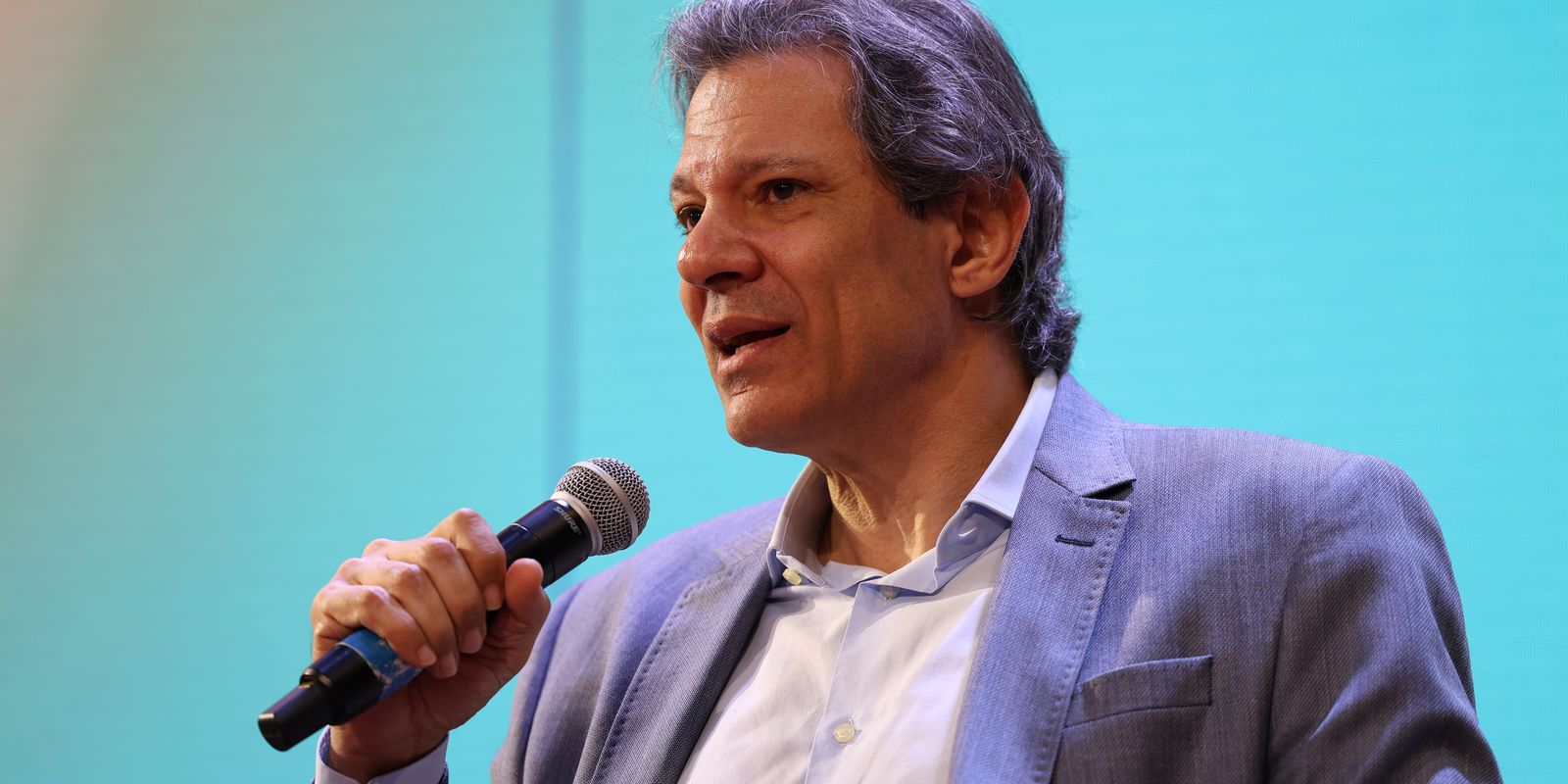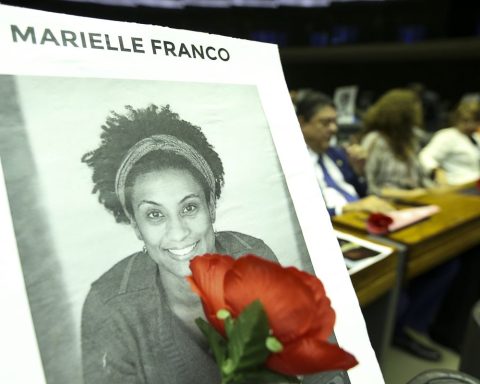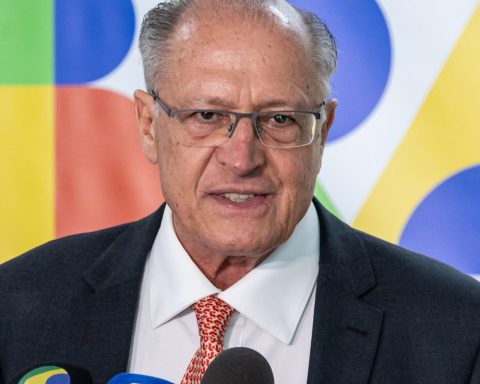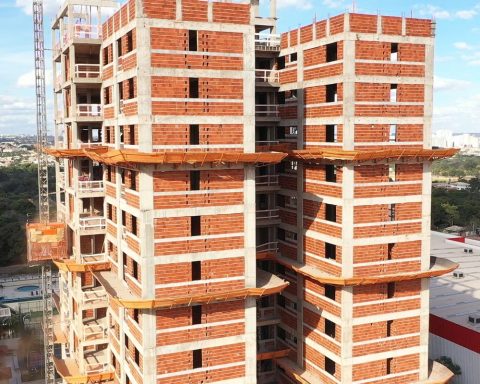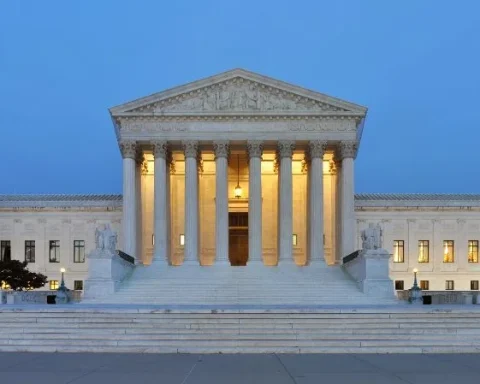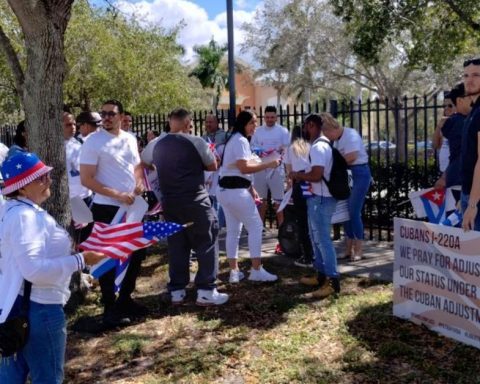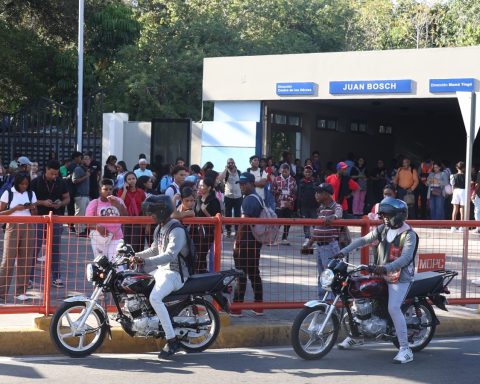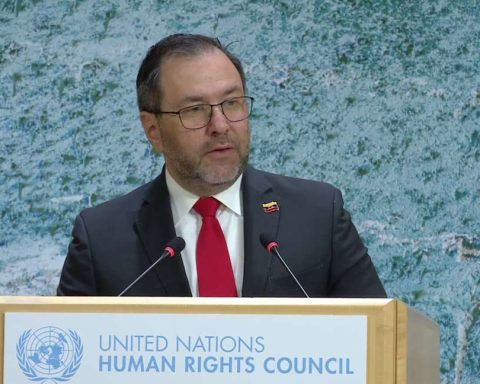Finance Minister Fernando Haddad said this Wednesday (24) that Brazil joins the other signatory countries of the Global Climate Finance Framework, endorsed during COP 28, in the United Arab Emirates, highlighting that this instrument connects with some of the main commitments of the Brazilian presidency of the G20 by contributing to making climate finance more available and accessible to all.
“I am confident that through our collective wisdom, determination and collaboration, we can chart a course towards a more sustainable and prosperous future,” said Haddad, while participating in the “United Arab Emirates COP28-G20 Brazil Finance Track” event in Rio de Janeiro.
Haddad listed the priorities for sustainable finance during his presidency of the G20. He thanked the Arab countries for their commitment to tackling the climate crisis, which he considers one of the most urgent challenges of our time, “while at the same time reinforcing the fight to reduce inequalities and maintain the sustainable development of our economies.”
The minister highlighted that the countries were meeting at a critical moment, marked by environmental tragedies such as the recent floods that devastated the Brazilian state of Rio Grande do Sul, which demonstrate the urgency of taking action against climate change. He argued that the need for a coordinated global effort “has never been so evident.”
“We know that more than a third of the global economy is exposed to physical risks related to climate change. By 2050, if global warming is not kept well below 2 degrees Celsius, around 4.4% of global Gross Domestic Product (GDP) could be lost annually in the absence of adaptation measures. The decisions we make and the actions we take in forums such as the G20 and COP will resonate globally and define the legacy we leave for future generations,” said the minister.
Financing
Opening the discussions at the UAE event, the minister highlighted the central theme of the meeting, which aims to mobilize massive financing for climate and sustainable development challenges. “This is not only timely, but also crucial to align our economic systems with environmental sustainability and social equity,” he stressed. He highlighted that, in Brazil, significant steps have been taken to integrate sustainability into the economic agenda, through the ecological transformation plan.
“This ambitious initiative aims to transition our economy to a low-carbon, inclusive and resilient future. The plan is a realization of our commitment to the Paris Agreement and the United Nations (UN) sustainable development goals. The ecological transformation plan encompasses a series of policies and investments aimed at decarbonizing our industry, promoting sustainable agriculture, protecting our valuable biodiversity, and fostering green innovation. In doing so, we aim to create economic opportunities, generate sustainable jobs, and ensure the well-being of our citizens, while protecting our natural heritage,” said Fernando Haddad.
The minister acknowledged, however, that national efforts are not enough, given that climate change is a global challenge and requires a response of the same proportion. “It is in this spirit of collaboration that we meet today to explore how we can collectively foster innovative solutions for sustainable finance.”
Financial Institution
According to Haddad, it is necessary to unlock the full potential of public and private capital to drive a fair transition to a resilient global economy. In this sense, he stated that one of the pillars in solving this challenge is the strengthening of development finance institutions, which play an important role in mobilizing resources, providing technical assistance, risk mitigation and sustainable investments. He argued that, by strengthening their capacities, these institutions will become better prepared to support developing countries in their climate ambitions.
Engaging the private sector is equally essential, the minister argued. Haddad pointed out the need to create a favorable environment that encourages private investment in green technologies and sustainable infrastructure. This includes developing innovative financial instruments, such as green bonds, and a type of blended financing that can involve large-scale private capital.
He assured that, in this sense, the roadmap for reforms of multilateral development banks and the agenda for facilitating access to multilateral environmental and climate funds, which are a priority of the Brazilian presidency of the G20, “could be catalytic in the transformation of the financial architecture, increasing the availability of concessional capital for energy transition, in line with the global climate finance framework launched at COP 28”.
Platforms
The Finance Minister also said that new investment platforms led by countries, which are flexible and connected to relevant financial agents, can be effective vectors for mobilizing capital for sustainable development. “If they are designed in conjunction with new mechanisms for mitigating exchange rate risk, such as Eco Invest Brasil, recently launched, they will increase their capacity to attract international private capital to finance sustainable projects.”
Eco Invest Brasil is an initiative of the Brazilian government developed to, in a complementary manner to the ongoing reforms, provide stability and predictability to the country’s macroeconomic framework, create structural conditions to attract external private investments necessary for the national ecological transformation, seeking to adopt innovative concepts and good financial practices, with the inclusion of climate and environmental, social and governance criteria.
For Haddad, access to climate finance remains a significant challenge for many developing countries, particularly those most vulnerable to the impacts of climate change. “Supporting these countries in strengthening their capacities to plan and implement effective climate projects enables and directs finance to where it is most needed,” he stressed.
Global flow
Recent data from the International Energy Agency (IEA) indicate that the global flow of climate finance is predominantly directed to developed countries, which receive 44% of the resources, and to China (39%). Emerging economies and least developed countries receive, respectively, 14% and 2% of the total resources. When looking only at investments in renewable energy, emerging economies receive 15% of the total investments in this area, despite being home to two-thirds of the world’s population.
Transparency and accountability are also important, as the minister assured. “Robust mechanisms to track climate finance flows and measure their impacts not only build trust, but also increase efficiency and effectiveness in the application of resources. As we delve into these discussions, we remember that our efforts do not only mean mitigating climate risks, but also seizing the opportunities that a green economy offers. We seek the benefits of a transformative process where socioeconomic development and environmental sustainability go hand in hand, making the energy transition a source of economic convergence.”
